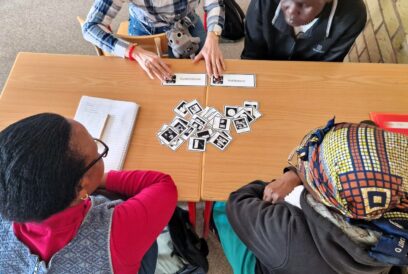

“Non-formal adult education deserves the same attention as vocational education”
Published:The EU offers funding and transnational learning opportunities – but it could do even more for adult education. In three articles, professionals from Germany, Romania and the United Kingdom reflect on the importance, impact and issues that the European Union has brought to adult education in their countries.
Germany: Winfried Ellwanger
- Director of Volkshochschule im Landkreis Cham, an adult education centre in Bavaria, Germany.
- Board member of the regional association for adult education centres in Bavaria (Bayerischer Volkshochschulverband).
- Board member of the German Adult Education Association (Deutscher Volkshochschul-Verband).
“The possibility to take part in EU-funded projects is very important to our adult education centre.
We offer both non-formal and formal education, and much of our vocational training is dependent on the funding Germany receives from the European Social Fund. In addition to this, our international department does a lot of work with Erasmus+ projects and other European grants.
Looking at it on a country-level, the use of these opportunities varies – some organisations do not take part in EU projects at all, while others do it to a great extent. The European influence does still also reach those organisations that are less active, as the idea of lifelong learning guides daily work in all adult education organisations.
Working with EU-funded projects does add some bureaucracy to our daily work. You need to think about co-financing a lot, for example, as the funding rarely covers all related costs. We are used to this, but I think it can prevent smaller organisations from taking part in these projects.
I do not want to say that the bureaucracy is unnecessary, because it is important to have a control system. However, a little less of it would be a good thing.
I BELIEVE THE EUROPEAN UNION should have more focus on non-formal adult education. Most of the funding and focus is on vocational skills and meeting the needs of the labour market, but a lot less is available for general education.
At the same time political right-wing movements, which are against the EU and migration, are gaining support around Europe.
We should reflect this in adult education centres across Europe and offer courses on political and cultural themes as well as migration and history, for example. This is something that would need financing.
The EU should also build a recognition system for non-formal education and competencies, something similar to what was done with ECVET (European Credit system for Vocational and Educational Training).
It is not only about what the EU could and should do differently. Adult education providers could also be more active in taking part in EU projects. You can start as a partner in a small project and see what you can learn from other countries. Everybody can do it. Having said that, this is possible only if the funding parties – like the state or local government – recognise the importance of European cooperation to adult education.”






